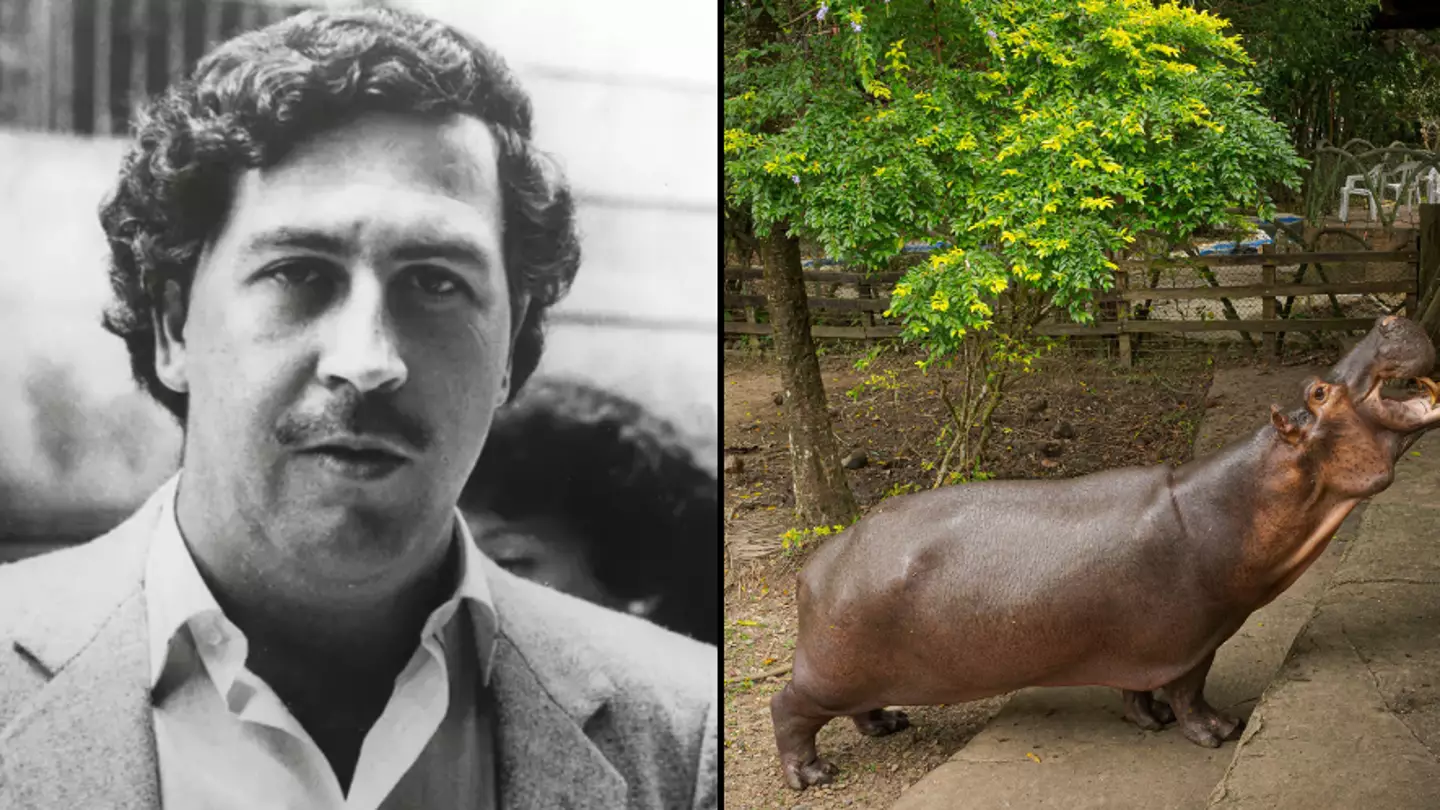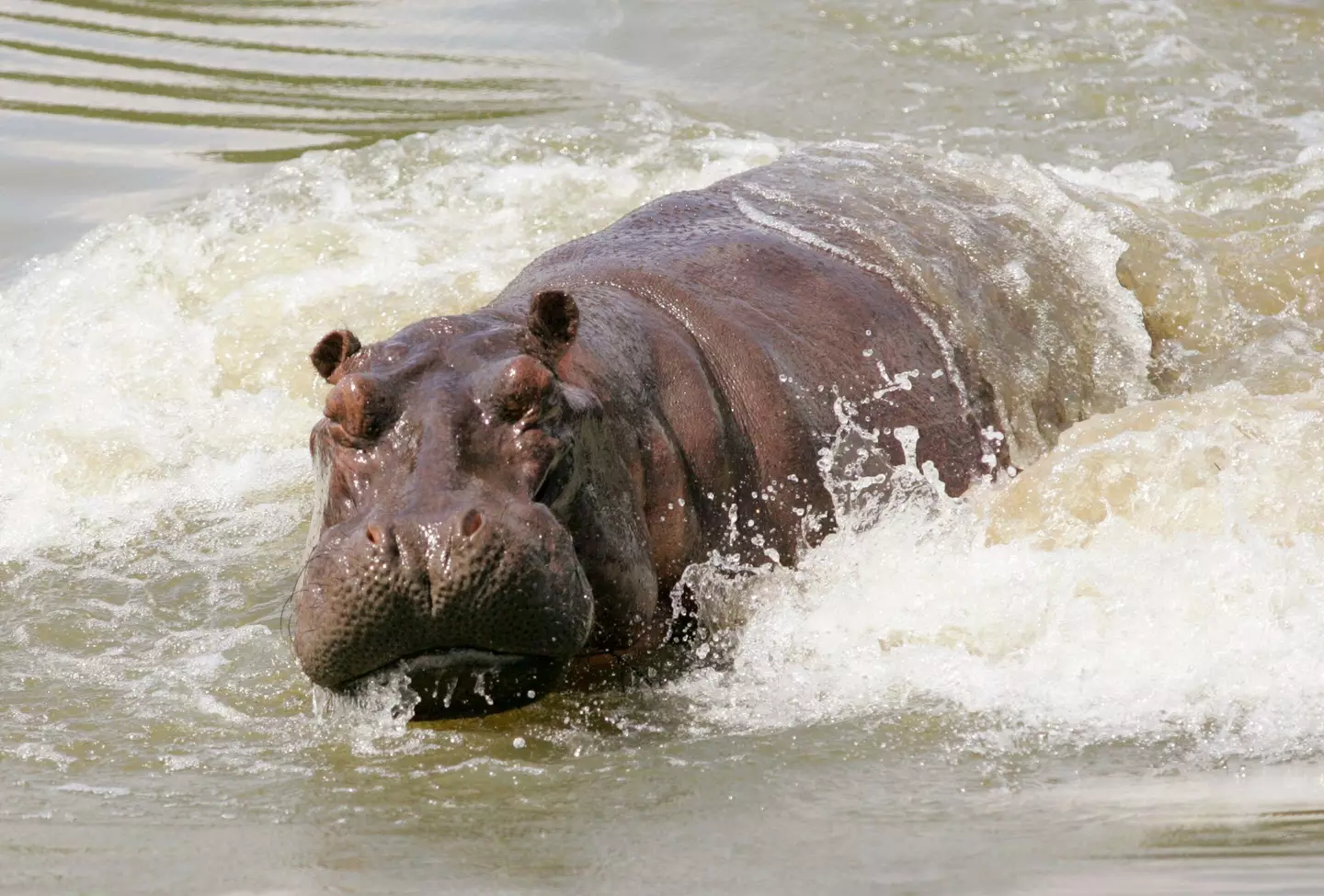
Pablo Escobar has been dead for 30 years, and still, he's causing the Colombian government loads of problems.
Like any drug kingpin worth his salt, Escobar lived a lavish lifestyle. In the '80s, he built the biggest cocaine empire on the planet, all the while building his own personal zoo on the side.
No stranger to illegal imports, the former head of the Medellin Cartel had four hippos shipped in for his zoo - which was also home to kangaroos, giraffes and elephants.
After Escobar was killed by police in 1993, the government seized control of his estate and rounded up most of the animals, but the hippos were abandoned due to the cost and logistical issues associated with transporting them.
Advert
Fast-forward to the present day, and the so-called 'cocaine hippo' population has grown to around 150, with scientists warning this number could grow to almost 1,500 by 2040.
How best to tackle the hippos has caused a great deal of headaches for authorities, with a controversial cull previously mooted. But now plans are in place to ship them overseas - at great expense.
.jpg)
A total of 70 hippos are to be sent abroad, with a sanctuary in India receiving 60 of them, and the Ostok Sanctuary in Mexico taking on the other 10.
"The whole operation should cost around $3.5 million," Ernesto Zazueta, owner of the Ostok Sanctuary, said in a press conference on Wednesday (29 March).
Advert
The mammals roam free north of Bogota around the Magdalena River, but experts have warned they could do irreversible environmental damage if the population is allowed to grow unchecked.
The urine and faeces produced by the animals is toxic and contains bacteria that is dangerous to both other creatures and humans.
Their aggression also makes them dangerous. Hippos kill more people annually in their native Africa than any other mammal.

In October 2021, one of the hippos attacked and seriously injured a man while he was fishing, and in 2020 one of the animals flung a cattle farmer in the air, breaking his hip, leg and several ribs.
Advert
They also threaten native endangered species, such as manatees.
The Cornare state environmental agency managed to surgically sterilise 11 hippos and dart another 40 with contraceptives, but this has cost more than $100,000 (£74,000) and numbers have continued to grow.
In Africa, hippos have to compete for access to water, fend off disease and avoid being preyed upon by a variety of predators. Whereas in Colombia, an optimal environment defined by an abundance of rain and a lack of predators has allowed Escobar's hippos to thrive.
Topics: News, Animals, Drugs, Pablo Escobar